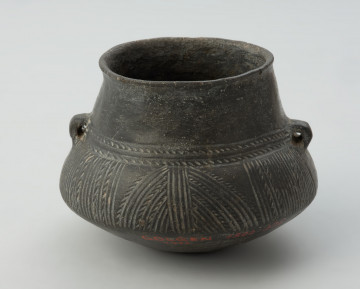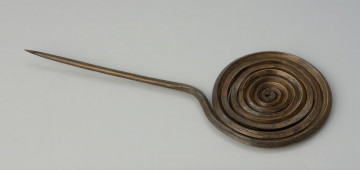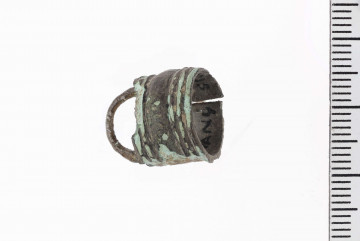
An amphora
around 750 p.n.e. — 550 p.n.e.
National Museum in Szczecin
Part of the collection: Bronze Age
The bronze neck-ring found in the town of Paproty is one of the four objects comprising a hoard discovered in a bog, dated to the older phase of the Early Iron Age (ca. 750-600/550 BC). The presented ornament was made of thin metal sheet, decorated with carvings and delicate zigzag patterns. It can be classified as a collar neck with a hook clasp. The so-called bog deposits are considered to be votive offerings, or the sacrifices made to the aquatic deities. In the Bronze Age, the places related to water, in particular rivers and swamps, were given a special reverence. The riverbanks were the common location of cemeteries, while the clay vessels were decorated with wavy or zigzag lines and spirals, symbolizing water. The offerings thrown into the rivers contained mainly weapons, while the metal tools, ornaments and vessels are usually discovered in the swamps and lakes in Poland, Germany and Scandinavia.
Monika Witek
Author / creator
Dimensions
the entire object: height: 3 cm, width: 15 mm
Object type
body adornment
Technique
casting
Material
bronze
Origin / acquisition method
legal transfer
Creation time / dating
Creation / finding place
Owner
National Museum in Szczecin
Identification number
Location / status

around 750 p.n.e. — 550 p.n.e.
National Museum in Szczecin

around 750 p.n.e. — 400 p.n.e.
National Museum in Szczecin

National Museum in Lublin
DISCOVER this TOPIC
National Museum in Szczecin
DISCOVER this PATH
Educational path